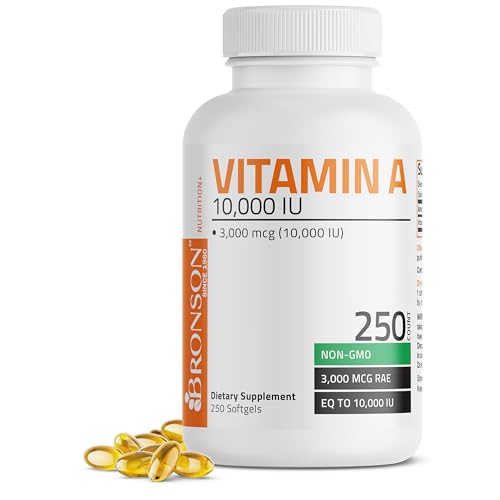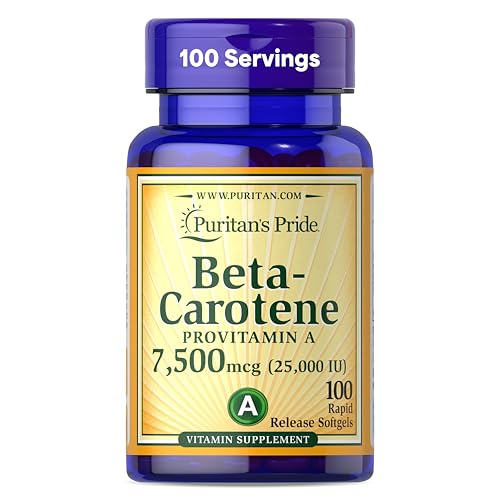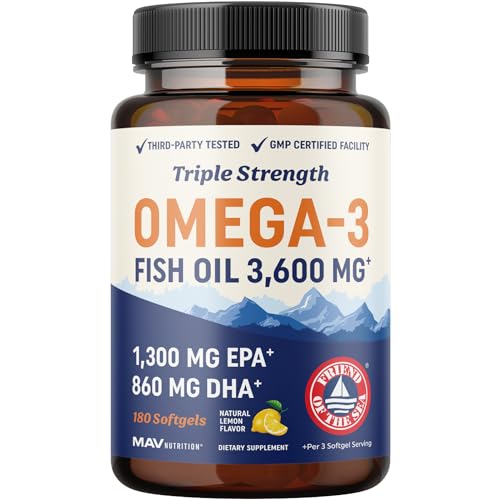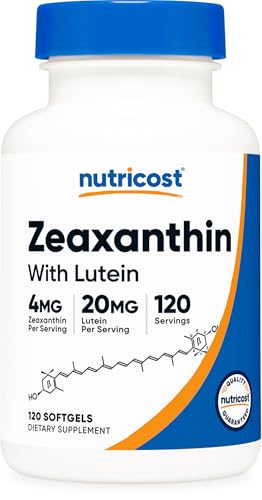Your eyes are a window to the world, and keeping them healthy is essential for a vibrant life. Among the nutrients that support vision, vitamin A stands out as a cornerstone for maintaining clear sight and preventing debilitating eye conditions. From enabling night vision to protecting the cornea, vitamin A is indispensable. This article explores how the vitamin supports eye health, the risks of deficiency, and how to incorporate it alongside other key nutrients like beta-carotene, lutein, and omega-3 fatty acids through diet and supplements. Drawing from expert insights, we’ll guide health-conscious readers on nurturing their vision naturally.
Why Vitamin A Is Essential for Your Eyes
Vitamin A is a fat-soluble nutrient critical for multiple aspects of eye health. It exists in two forms: retinol (found in animal products) and beta-carotene (a plant-based precursor converted to vitamin A in the body). According to the American Academy of Ophthalmology (AAO), vitamin A is vital for producing rhodopsin, a pigment in the retina that enables vision in low-light conditions. Without adequate vitamin A, the retina struggles to process light, leading to vision impairment.
Bronson Vitamin A 10,000 IU Premium Non-GMO Formula Supports Healthy Vision & Immune System and Healthy Growth & Reproduction, 250 Softgels
High Potency: 10,000 IU per single softgel. Supports Healthy Vision & Immune Health.*
Superior Quality: Laboratory tested Non-GMO. In-house tested in our state-of-the-art cGMP registered New York facility.
Trusted Since 1960: The pioneers of Bronson Vitamins were a group of pharmacists who witnessed the benefits of vitamins and mineral supplementation firsthand with their patients. Bronson Vitamins have been consistently mentioned by top medical professionals since our inception in 1960.
View on AmazonBeyond night vision, vitamin A maintains the cornea—the eye’s clear outer layer—by supporting the production of moisture-rich mucous membranes. This prevents dryness and protects against infections. A 2022 study by Saucy et al. highlights how derivatives, or retinoids, are integral to the visual cycle, ensuring the retina functions optimally. For health-conscious individuals, prioritizing vitamin A is a proactive step toward lifelong eye health.
Boosting Vitamin A with Beta-Carotene
Beta-carotene, found in vibrant orange and green vegetables, is a safe and effective way to increase vitamin A intake. Unlike retinol, which can be toxic in excess, beta-carotene is converted to vitamin A only as needed, reducing overdose risks. Foods like carrots, sweet potatoes, and spinach are rich in beta-carotene, making them ideal for supporting retinal health and overall vision.
Puritan's Pride Beta Carotene Provitamin A 7,500mcg (25,000 IU), Vitamin Supplement for Immune System, Antioxidant and Eye Health Support, 100 Day Supply, 100 Rapid Release Softgels
Puritan's Pride Beta Carotene Provitamin A delivers 7,500 mcg (25,000 IU) of Beta Carotene, which readily converts to Vitamin A in your body as needed, ensuring you receive the nutrients essential for your well-being.* Beta Carotene supports your immune system, while providing powerful antioxidant benefits that help fight against free radicals and help protect your body from oxidative stress.* Plus, it plays a crucial role in maintaining healthy vision, making it a must-have for your eye health.* With 100 rapid release softgels in each bottle, you’ll enjoy a convenient 100-day supply of this essential nutrient. *These statements have not been evaluated by the Food and Drug Administration. This product is not intended to diagnose, treat, cure or prevent any disease. (Packaging May Vary)
POWERFUL PROVITAMIN A: Puritan’s Pride Beta Carotene provides 7,500 mcg (25,000 IU) per serving. It converts to Vitamin A as needed, supporting skin health, immune function, and cell growth*
IMMUNE SYSTEM SUPPORT: Support your immune system with this nutrient to promote overall health and wellness*
ANTIOXIDANT PROTECTION: Beta Carotene provides antioxidant benefits, helping to neutralize free radicals and help protect your body from oxidative stress*
EYE HEALTH & CLEAR VISION: Beta Carotene supports eye function and maintains sight clarity. It contributes to retina and overall eye health, helping you experience the world clearly*
LIVE BOLDLY, AGE GRACEFULLY: For over 50 years, Puritan's Pride has provided premium-quality supplements at exceptional value. Embrace vitality and wellness at any age. With Puritan's Pride, feel your best and live boldly each day
View on AmazonThe Dangers of Vitamin A Deficiency
Deficiency can lead to serious eye conditions, particularly in vulnerable populations. The AAO identifies night blindness (nyctalopia) as an early warning sign, where individuals struggle to see in dim light due to impaired rhodopsin production. If untreated, deficiency can progress to xerophthalmia, a severe condition causing dry eyes, corneal damage, and even blindness.
A 2023 review by Castrejón-Morales et al. details how xerophthalmia manifests as conjunctival dryness, Bitot’s spots (foamy patches on the eye’s surface), and corneal ulceration. These conditions are especially prevalent in developing regions but can affect anyone with poor dietary intake. Incorporating vitamin A-rich foods and supplements can prevent these risks, ensuring the eyes remain healthy and resilient.
Addressing Dry Eye Syndrome
Dry eye syndrome, characterized by discomfort and irritation, can also be linked to vitamin A deficiency, as it disrupts the eye’s moisture balance. A 2017 study by Deinema et al. found that omega-3 fatty acids, such as DHA and EPA, reduce dry eye symptoms by up to 17%. Combining omega-3s with vitamin A can enhance eye lubrication and comfort.
Triple Strength Omega 3 Fish Oil 3600 mg | EPA & DHA | Over 2100mg Omega-3 Fatty Acids | 1300mg EPA + 860mg DHA | Best Essential Fatty Acids | Premium Wild Caught & Burpless Fish Oil | 180 Ct
TRIPLE STRENGTH FISH OIL: The fatty acids in fish oil support healthy eyes, brain, immune system, and so much more.* This Omega3 Fish Oil complex provides 3600mg of total fish oil per serving for ultimate support, and every bottle contains a 60-day supply!
POTENT FISH OIL SUPPLEMENTS: Packed with essential fatty acids, MAV Nutrition’s DHA EPA Omega 3 supplement provides a super concentrated, potent formula. Each serving contains a high 1300 mg of EPA and 860 mg of DHA.
OMEGA-3 FISH OIL ULTRA-REFINED: Our fish oil pills are highly refined using the best purification method: molecular distillation. This process increases potency and filters out mercury, heavy metals, PCB's, and other toxins to below detectable limits for human consumption.*
SUSTAINABLE & WILD-CAUGHT: This Non-GMO high EPA DHA Omega 3 supplement is sourced purely from clean, wild caught fish from Friend of the Sea certified sustainable fisheries. The best fish oil on the market is environmentally friendly!*
NO FISHY AFTERTASTE: The ultimate Omega 3 DHA EPA supplement is concentrated in premium burpless citrus-flavored softgels to give you clean, high-quality fish oil DHA with no fishy burps or aftertaste. Try the highest quality Fish Oil Omega 3 supplements today!
View on AmazonTop Foods for Vitamin A and Eye Health
A balanced diet is the foundation of healthy vision. Vitamin A comes from two primary sources: retinol in animal products and beta-carotene in plants. Here are some top choices:
- Liver and Fish: Beef liver (28,000 IU per 100g) and fatty fish like salmon are rich in retinol, directly supporting retinal function.
- Colorful Vegetables: Carrots (835 mcg RAE), sweet potatoes, and kale provide beta-carotene, boosting vitamin A levels.
- Leafy Greens and Fruits: Spinach and mangoes offer beta-carotene alongside lutein and zeaxanthin, which protect the retina from harmful blue light.
Other nutrients also play a role. Vitamin C (in citrus fruits and bell peppers) supports collagen in the eye’s connective tissues, while vitamin E (in almonds and sunflower seeds) protects against oxidative damage. A 2023 study by Pereira et al. emphasizes that a diet rich in these nutrients reduces the risk of cataracts and other age-related eye issues.
Supplements for Optimal Eye Health
For those at risk of deficiency or with conditions like age-related macular degeneration (AMD), supplements can bridge dietary gaps. The landmark Age-Related Eye Disease Studies provide evidence-based formulations to slow AMD progression. These include:
- Vitamin A/Beta-Carotene: Supports night vision and corneal health (AREDS2 recommends lutein over beta-carotene for smokers due to lung cancer risks).
- Lutein and Zeaxanthin: 10 mg and 2 mg daily, respectively, to protect the retina and reduce AMD risk.
- Vitamin C and E: 500 mg and 400 IU daily to combat oxidative stress.
- Zinc: 25–80 mg daily to support retinal health.
- Omega-3 Fatty Acids: 1,000–2,000 mg of DHA/EPA for dry eye relief and retinal support.
Nutricost Zeaxanthin with Lutein 20mg, 120 Softgels - Potent, Non-GMO, Gluten Free
Nutricost’s Zeaxanthin with Lutein are high quality, non-gmo and gluten free. Each softgel contains 20mg of Lutein and 4mg of Zeaxanthin. All Nutricost products are made in a GMP compliant, FDA registered facility and undergo testing by independent (3rd party) ISO-accredited laboratories to insure you get the best products!
120 Zeaxanthin with Lutein Softgels Per Bottle
20mg of Lutein Per Capsule (120 Servings)
4mg of Zeaxanthin Per Capsule
3rd Party Tested by Independent, ISO-Accredited Laboratories
Non-GMO, Gluten Free, and Made in a GMP Compliant, FDA Registered Facility
View on AmazonThe EyeWiki underscores that these nutrients, when combined, offer comprehensive protection against AMD and cataracts. Always consult an ophthalmologist before starting supplements to avoid toxicity, especially with vitamin A.
Protecting Your Eyes for the Long Term
Beyond diet and supplements, protecting your eyes involves lifestyle choices. Wear UV-protective sunglasses to shield the retina and reduce cataract risk. Regular eye exams can catch early signs of night blindness, xerophthalmia, or AMD, ensuring timely intervention. By prioritizing vitamin A and complementary nutrients like zinc, vitamin C, and omega-3s, you can maintain clear, comfortable vision.
Conclusion
Vitamin A is a powerhouse nutrient for eye health, supporting everything from night vision to corneal integrity. Its deficiency can lead to serious conditions like night blindness and xerophthalmia, but a diet rich in beta-carotene, lutein, and omega-3 fatty acids can prevent these risks. Supplements, guided by research like AREDS2, offer additional protection against AMD and dry eye syndrome. By incorporating foods like carrots, salmon, and spinach, and consulting with eye care professionals, health-conscious readers can safeguard their vision naturally. For more insights, explore resources from the American Academy of Ophthalmology or EyeWiki.




